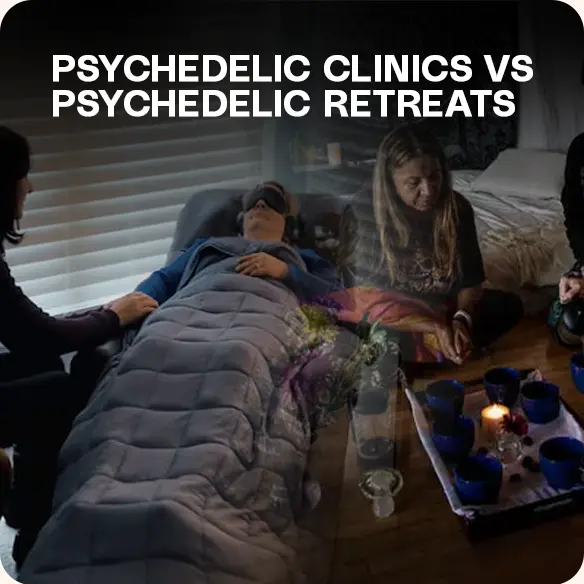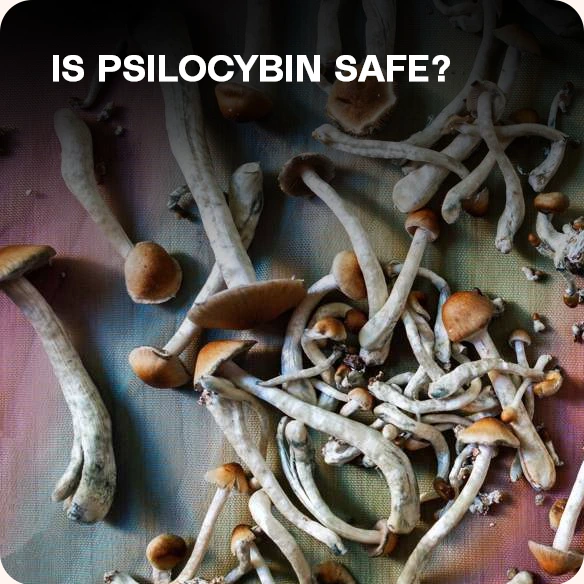Microdosing means taking sub-perceptual amounts of a psychoactive substance on a structured schedule, prioritizing legality, safety, and clear intentions—the best 2025 methods emphasize professional guidance, set/setting, and consistent journaling.
Learn how to prepare for your microdosing journey with essential precautions, best practices, and effective tracking methods, and discover supportive communities to enhance your experience.
Key Takeaways:
- Microdosing involves taking very small, sub-perceptual doses of psychedelic substances such as psilocybin (found in magic mushrooms) or lysergic acid diethylamide (LSD) to gain potential benefits without intense psychoactive effects, with preparation methods including capsules, tinctures, gummies, and manual measurement requiring precise dosing to avoid inconsistencies.
- Safety is paramount, necessitating knowledge of appropriate dosages, reliable sourcing, and understanding potential risks, especially for individuals with mental health concerns who should consult healthcare professionals before microdosing; avoiding unregulated research chemicals is critical.
- Microdosing may offer mental health benefits such as reduced anxiety and depression symptoms, improved mood, creativity, focus, and overall well-being, though many benefits are based on anecdotal reports and self-reported data, with clinical research showing generally consistent associations but also highlighting placebo effects.
- Tracking microdosing effects through journals, mobile apps, and standardized self-report measures like the negative affect schedule supports empirical research and helps distinguish true effects from placebo or expectancy influences; citizen science initiatives enable large-scale data collection and placebo-controlled designs outside traditional research settings.
- Joining microdosing coaching offers support, shared knowledge, expert advice, and access to evidence-based practices, fostering safe and informed microdosing experiences.
Future research priorities include standardized dosing protocols, long-term safety assessments, exploration of clinical applications, and improved methods to control for placebo response and individual variability in effects.
What is Microdosing?
Microdosing involves taking a very small, sub-perceptual amount of a supplement—often a very low dose of psychedelic substances like psilocybinor lysergic acid diethylamide (LSD)—to achieve benefits without full psychoactive effects.
.jpg_00.jpeg)
These are examples of psychedelic supplements, with psilocybin being the active compound found in magic mushrooms.
What Are the Different Methods of Microdosing?
Common methods include microdose capsules, tinctures, gummies, and manual measurement of small amounts, regardless of the supplement used.
.jpg_01.jpeg)
Microdose capsules and gummies offer precise, convenient dosing. Beginners may start with calming capsules, while others prefer focus-enhancing psilocybin capsules for clarity and productivity.
Tinctures provide liquid extracts but require careful monitoring for consistent effects.
Manual measurement is simple but risks dosing inconsistencies.
The exact microdose varies depending on the supplement and individual tolerance. Microdosing can also involve other psychoactive supplements, not just classic psychedelics.
What Are the Mental Health Benefits of Microdosing?
Microdosing enhances creativity, focus, and emotional balance with minimal doses that avoid intense effects.
Anecdotal reports suggest significant improvements in creativity and productivity, though these are based on personal accounts rather than controlled clinical evidence.
The placebo effect may play a role in these perceived benefits.
Microdosing relates to potential mental health improvements, including reduced anxiety and depression symptoms and overall enhanced well-being.
Some studies and anecdotal reports suggest microdosing may contribute to improved mental health, including reductions in symptoms of mental illness such as depression and anxiety.
Many individuals report increased mindfulness, mood, and mental health improvements when following established microdosing protocols, such as the Fadiman protocol or Paul Stamets’ stack, which combines psilocybin with lion’s mane and niacin to support neurogenesis.
Cognitive benefits include improved problem-solving skills, productivity, and psychological functioning.
Finding the right microdose for each individual is crucial, as effects vary based on unique physiology and tolerance.
How to Prepare for Microdosing?
Preparation involves psychological readiness, understanding the supplement, and securing a consistent, reliable source of microdose capsules.
.jpg_10.jpeg)
Establishing experimental control, standardizing dosing routine and environment, minimizes variability.
Preparation should also include awareness of both direct supplement effects and psychological influences, as it can be challenging to distinguish between the pharmacological impact and expectancy or placebo effects.
Awareness of placebo effects is important, as some benefits may stem from psychological factors.
Preparation for microdosing can also be informed by findings from lab-based studies, which offer controlled insights into dosing and effects.
What Are the Precautions to Take Before Microdosing?
Before microdosing, consult professionals, understand legal aspects, and consider interactions with other medications.
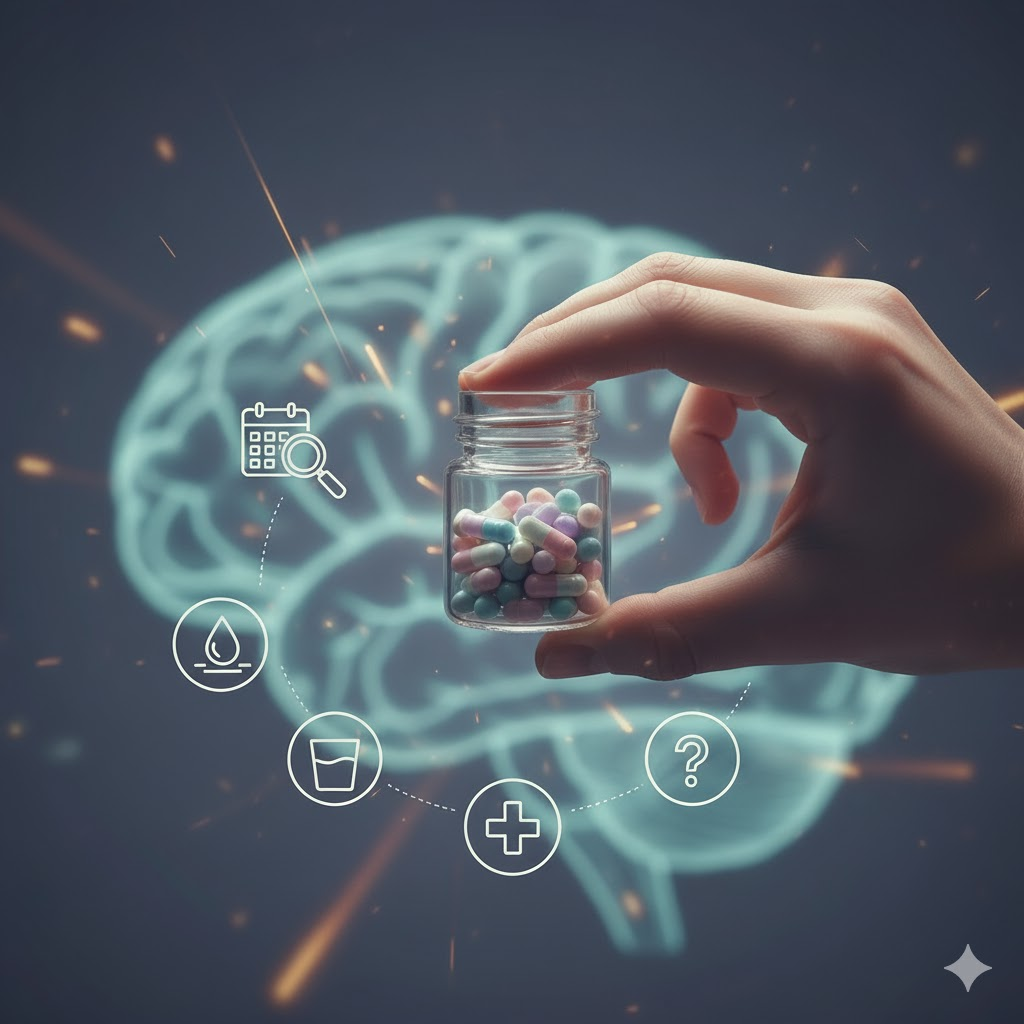
Consultation ensures safety and appropriateness.
Clinical research on microdosing safety and efficacy remains limited.
Consider potential interactions with other substances affecting safety and effectiveness.
What Are the Best Practices for Microdosing?
Best practices include keeping detailed journals, starting with the lowest effective dose, and maintaining regular schedules to monitor mental and physical well-being.
Journaling tracks patterns, effects, and unexpected outcomes.
Use self-report measures like daily logs or questionnaires to evaluate mood, cognition, and well-being.
Prospective studies and at least one prospective study have tracked microdosing outcomes over time to inform best practices.
Manage doses consistently and precisely to avoid fluctuations.
Set realistic expectations; microdosing produces gradual improvements, not quick fixes.
Be aware of confirmation bias when interpreting results.
Join webinars or communities for guidance.
How to Microdose Safely?
Safe microdosing requires knowing your effective dose, using reliable products like microdose capsules for consistent dosing, and ensuring the identity and purity of the psychedelic substance.
Inclusion criteria such as age, health status, and prior experience with psychedelics determine appropriateness.
Individuals with mental health concerns must consult healthcare professionals before microdosing.
Avoid unregulated research chemicals with unknown safety profiles. The potential influence of individual expectations and psychological factors should also be considered, as they can affect the perceived safety and effects of microdosing.
What Are the Recommended Dosages for Microdosing?
Recommended microdoses for psychedelics typically range from one-tenth to one-twentieth of a recreational dose, a guideline supported by leading research and expert protocols.
For example, a typical recreational LSD dose is 100–200 micrograms, while a microdose is 10–20 micrograms.
For psilocybin mushrooms, a recreational dose is about 2–3 grams dried, with microdoses in the range of 0.1–0.3 grams.
High doses can produce intense perceptual changes, which are intentionally avoided in microdosing practices.
Most researchers and practitioners recommend starting with a low dose and gradually adjusting based on individual sensitivity and response.
Notably, psychoactive and supplement effects may still occur even at what are considered sub-perceptual levels, making careful monitoring essential.
Modern studies emphasize the use of accurately measured capsules or supplements to ensure consistent dosing, helping to reliably achieve targeted benefits such as improved mood, focus, and creativity without overwhelming effects.
What Are the Common Psychedelic Substances Used for Microdosing?
Common supplements include psilocybin, LSD, and other psychedelic substances, all of which are considered psychedelic supplements, with microdosing psilocybin being widely researched and popular.
Microdosing differs from recreational or high-dose use by employing sub-perceptual doses. In contrast, high dose psychedelics are associated with more pronounced changes in consciousness, increased risks, and different safety profiles compared to microdosing.
Many users report reduced anxiety and depression, improved mood, and enhanced productivity.
What Does Clinical Research Say About Microdosing?
Taken together, emerging microdosing research points to mood and cognitive benefits—especially with psilocybin—while also revealing clear evidence gaps.
To ground expectations and guide safe practice, the next sections briefly synthesize key findings, then outline current limitations and future directions that shape how to interpret and apply the science.
Recent Studies and Findings
Recent clinical research on microdosing psychedelics has generated significant interest in the scientific community, particularly regarding its potential to improve mental health and cognitive functioning.
A systematic review of 44 studies examining the effects of microdosing psychedelics found generally consistent associations with improved mood, reduced stress and anxiety, and enhanced cognitive performance.
Notably, microdosing psilocybin has been linked to significant improvements in well-being, with participants in clinical research reporting reduced symptoms of depression and anxiety, as well as greater overall life satisfaction.
These findings suggest that microdosing psychedelics may offer positive effects for individuals seeking to improve mental health and cognitive functions without the intense experiences associated with higher doses.
While anecdotal reports have long suggested these benefits, recent psychedelic research provides a growing body of empirical evidence supporting the potential of microdosing as an adjunct to traditional treatments for mental health conditions.
Limitations and Future Directions
Despite the encouraging results, current research on microdosing psychedelics faces several important limitations.
Many studies to date have involved small sample sizes, limiting the generalizability of their findings.
Additionally, there is a lack of standardization in dosing regimens and research methodologies, making it challenging to compare results across different studies and draw definitive conclusions about the effects of microdosing.
To address these challenges, psychedelic research should focus on conducting larger, well-controlled clinical trials with standardized protocols.
Such studies are essential to determine the efficacy and safety of microdosing psychedelics for various mental health conditions, including treatment-resistant depression and anxiety disorders.
As the field advances, rigorous clinical trials and systematic reviews will be crucial in clarifying the therapeutic potential of microdosing and guiding its integration into evidence-based mental health care.
How to Track the Effects of Microdosing?
Track microdosing effects by recording doses, monitoring mental and emotional states, and noting behavioral or cognitive changes over time.
Systematic tracking supports empirical research and reduces bias. Placebo-controlled approaches distinguish true effects from placebo or expectancy influences.
Tracking enables researchers to compare outcomes between the microdosing group and the placebo group, helping to identify significant differences or determine if a significant difference exists in the results.
What Are the Factors to Consider When Tracking the Effects?
- Consider dosage consistency to avoid fluctuations that cause inconsistent effects.
- Account for individual response variations due to unique biochemistry affecting reactions.
- Be aware of external factors such as diet, sleep, stress, and other mental health concerns that can mask or alter microdosing outcomes.
- Maintain a balanced lifestyle during tracking to ensure accurate assessment.
- Recognize that prospective research is needed to clarify long-term effects and efficacy.
What Are the Tools Available for Tracking Microdosing?
Available tools include mobile apps, digital journals, and spreadsheets for logging and analyzing experiences.
Standardized measures like the negative affect schedule track mood and emotional changes.
Mobile apps offer reminders and analytics.
E-books and spreadsheets provide detailed, customizable tracking.
Self-blinding citizen science enables placebo-controlled studies with effective blinding.
How Is Data Collected and Analyzed in Microdosing?
Effective data collection and analysis are fundamental to advancing microdosing psychedelic research and understanding its effects.
Researchers and citizen scientists employ a variety of methods to gather both personal and community data on microdosing practices.
Online surveys and questionnaires are commonly used to collect self-reported information about dosing routines, perceived effects, and overall experiences.
These tools allow for the collection of large datasets from diverse populations, providing valuable insights into the effects of microdosing psychedelics.
Mobile apps and digital platforms have also become popular for tracking microdosing experiences, offering users a convenient way to log doses, monitor changes in mood and cognitive functioning, and analyze trends over time.
In addition, interviews and focus groups provide in-depth, qualitative data on individual experiences, motivations, and perceptions related to microdosing.
Community-based approaches, such as discussions in online forums and social media groups, further enrich the data pool by capturing a wide range of self-reported experiences and perspectives.
By combining these various data collection strategies, microdosing research can achieve a more comprehensive understanding of the practice, inform future studies, and support the development of therapeutic applications for mental health and well-being.
What is Citizen Science and How Does It Relate to Microdosing?
Citizen science advances microdosing research by involving individuals in documenting effects of low-dose psychedelic supplements like LSD and psilocybin, using citizen science to explore the effects and practices of microdosing.
This collaborative approach bridges anecdotal evidence and scientific reports, helping citizen science projects explore psychedelic microdosing outside traditional research settings.
Citizen science contributes to psychedelic research by enabling the collection of large-scale data from diverse participants.
However, these studies must carefully consider the strong placebo response often observed in self-reported outcomes.
It is also essential to give appropriate credit to all contributors and data sources involved in citizen science projects.
How Individuals Contribute to Microdosing Research?
Individuals contribute by sharing self-reported experiences on mood, mental health concerns, and daily functioning.
This collective data informs future studies, protocol development, and research priorities.
Individual contributions build a robust evidence base supporting safe, effective microdosing.
Participating in Citizen Science Projects
Participation involves online surveys, cognitive tasks, and experience tracking.
Look for projects with clear methodologies, transparent data collection, and placebo control to ensure observed effects reflect direct supplement impact.
Systematic reviews synthesize findings, highlighting benefits and risks.
Staying informed enables educated participation and supports psychedelic therapies advancement.
How to Find a Microdosing Coaching?
Finding a microdosing coaching program involves seeking out expert-led communities and platforms dedicated to safe and effective psychedelic microdosing.
Start by exploring reputable organizations like Microdosify, which offer comprehensive coaching calls and personalized sessions designed to guide you through the microdosing process.
Look for programs that emphasize scientific interest, evidence-based practices, and provide education on dosing accuracy, timing, and monitoring individual responses.
Engaging with such coaching ensures you receive tailored advice, practical strategies, and ongoing support to optimize your microdosing experience and mental health outcomes.
Joining online forums, attending webinars, and connecting with experienced practitioners within these communities can also help you discover trusted microdosing coaching opportunities aligned with your wellness goals.
What Are the Benefits of Joining Microdosify Coaching Calls?
Joining Microdosify coaching calls offers personalized guidance, expert advice, and tailored strategies to optimize your microdosing journey.
Participants gain access to practical tips, safety information, and support for mental health and therapeutic goals.
Coaching calls foster a supportive environment, encouraging growth, exploration, and informed decision-making in psychedelic microdosing.
These sessions connect you with experienced practitioners and a community focused on scientific interest and evidence-based practices.
Microdosify offers both 30-minute and 1-hour coaching calls to accommodate different needs and schedules, providing flexible options for personalized support.
Additionally, the 30 Days Experience Program guides participants through a structured month-long microdosing journey, combining education, tracking tools, and ongoing coaching to maximize benefits and ensure safe practice.
Conclusion
To microdose means taking very low, sub-perceptual doses of psychedelic substances such as psilocybin and lysergic acid diethylamide (LSD) to potentially enhance creativity, focus, mood, and overall well-being without inducing intense psychoactive effects.
Successful microdosing involves precise dose measurement using reliable methods like milligram scales or volumetric dilution, adherence to established protocols such as the Fadiman or Stamets protocols, and prioritizing safety through trusted sourcing and consultation with healthcare professionals, especially for those with mental health concerns.
Systematic tracking of effects via journals, apps, and standardized self-report measures helps distinguish true drug effects from placebo or expectancy influences.
Recognizing the significant role of placebo effects, rigorous experimental control is essential, with emerging citizen science initiatives facilitating large-scale data collection.
By integrating scientific interest, harm reduction principles, and community support, individuals can responsibly approach microdosing to maximize benefits and minimize risks.
Continued empirical research and clinical studies remain crucial to establish definitive guidelines and optimize microdosing practices for mental health and cognitive enhancement.
Frequently Asked Questions
1. What is Microdosing?
Microdosing is taking very small amounts of psychedelic or psychoactive supplements regularly to experience subtle benefits in creativity, focus, and well-being, assessed via self-report measures like surveys and questionnaires.
2. What are the Benefits of Microdosing?
Benefits include increased productivity, improved mood and creativity, reduced anxiety and depression, and enhanced spiritual experiences. These claims rely largely on anecdotal evidence; clinical studies and trials are needed to confirm benefits and safety, controlling for placebo effects and confirmation bias.
3. What Substances Can be Microdosed?
Commonly microdosed supplements are psilocybin, LSD, and MDMA. Controlled lab studies have systematically investigated their effects and safety. Some also microdose cannabis, caffeine, and nootropics.
Store products in cool, dry places to preserve potency.
4. What is the Best Method for Microdosing?
Taking a small dose every few days, about 1/10 to 1/20 of a recreational dose, avoids intense experiences.
Placebo-controlled studies with placebo groups determine effective methods by distinguishing true effects from placebo.
5. How Do I Measure a Microdose?
Measure microdoses accurately using milligram scales or liquid dilution to ensure consistent, reliable dosing and avoid under- or overdosing.
6. Where Can I Find More Resources on Microdosing?
Microdosify offers extensive resources, guides, forums, and a supportive community.
Systematic reviews synthesize research findings, highlighting patterns and gaps.
Stay updated with future research on dosing schedules, safety, and cognitive and mental health effects.
7. Is Psilocybin a Drug or a Supplement?
Psilocybin is considered a supplement in the context of microdosing. It is a natural compound found in certain mushrooms and is used in very low doses to support mental health and well-being without producing strong psychoactive effects. Many users treat it as a supplement to enhance creativity, mood, and focus safely and responsibly. As a psychedelic drug, psilocybin’s effects at microdose levels are subtle, aiming to provide benefits without the intense experiences associated with higher doses.
Source:
- Cavanna, F. et al. (2022). Microdosing with psilocybin mushrooms: a double-blind placebo-controlled study. Translational Psychiatry, 12, 331.
- Microdosing Institute. “Dr. James Fadiman.” https://microdosinginstitute.com/microdosing-101/james-fadiman/
- Kuypers, K. P. C., Ng, L., Erritzoe, D., Knudsen, G. M., Nichols, C. D., Nichols, D. E., & Ramaekers, J. G. (2019). Microdosing psychedelics: More questions than answers? An overview and suggestions for future research. Journal of Psychopharmacology, 33(9), 1039–1057.
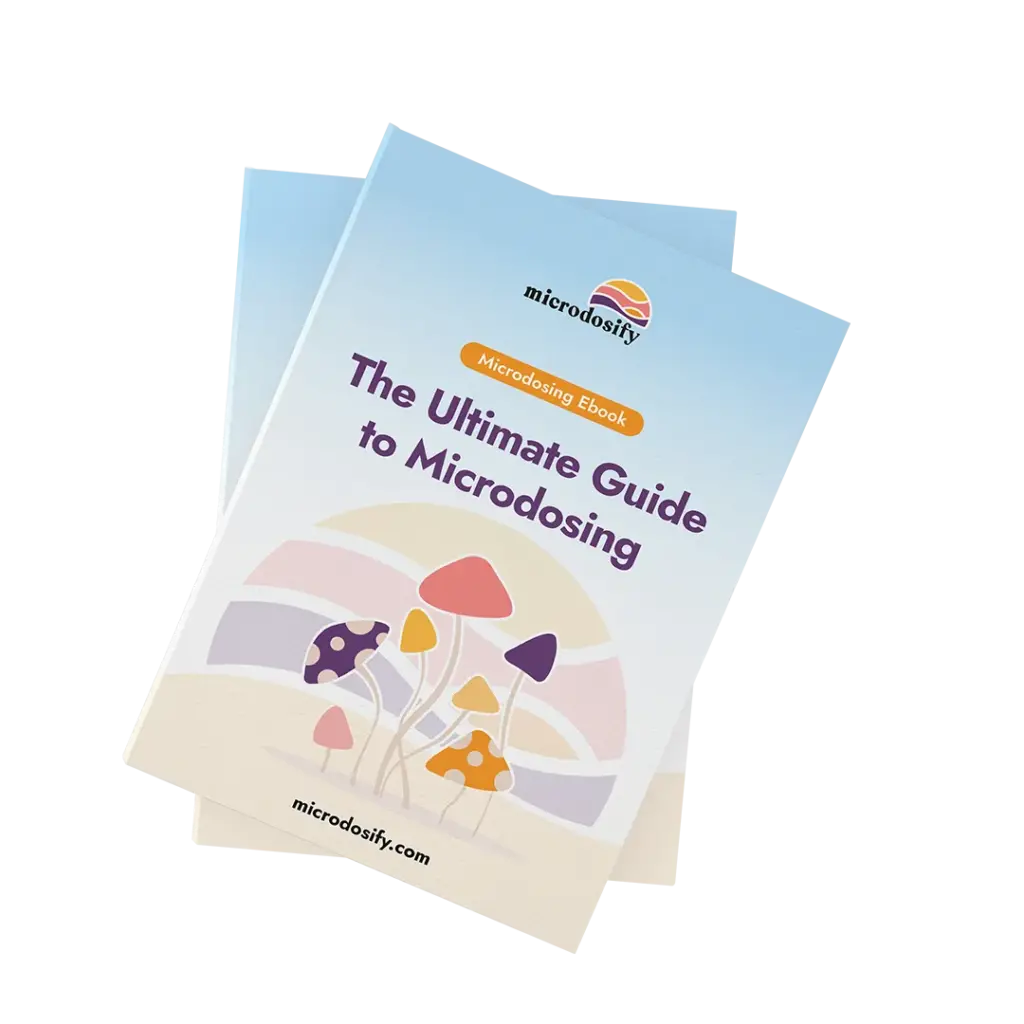

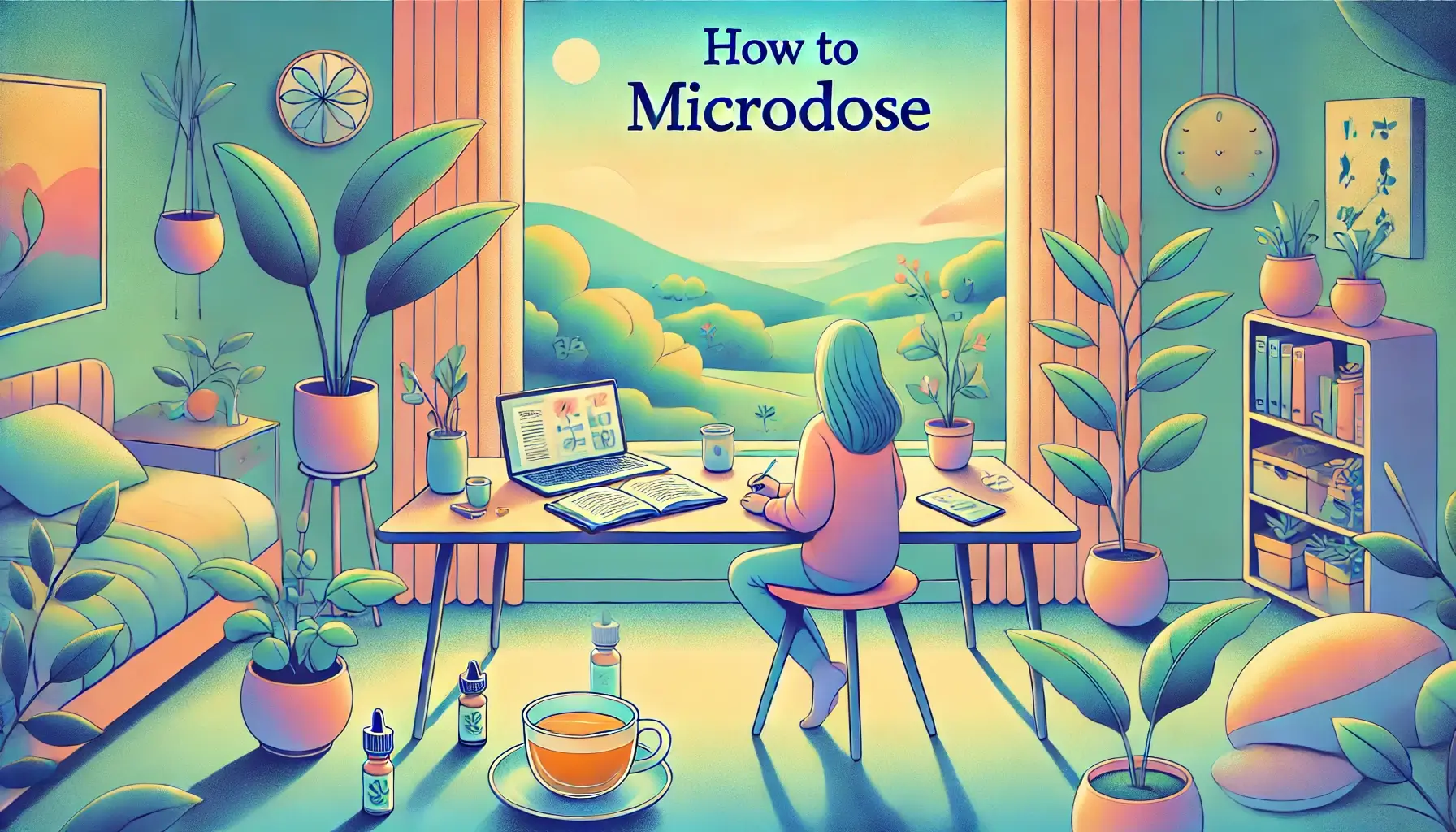
 15 min read
15 min read